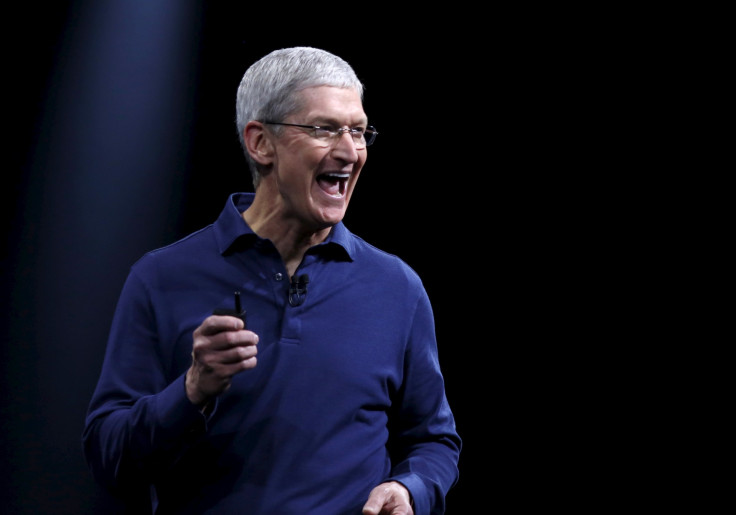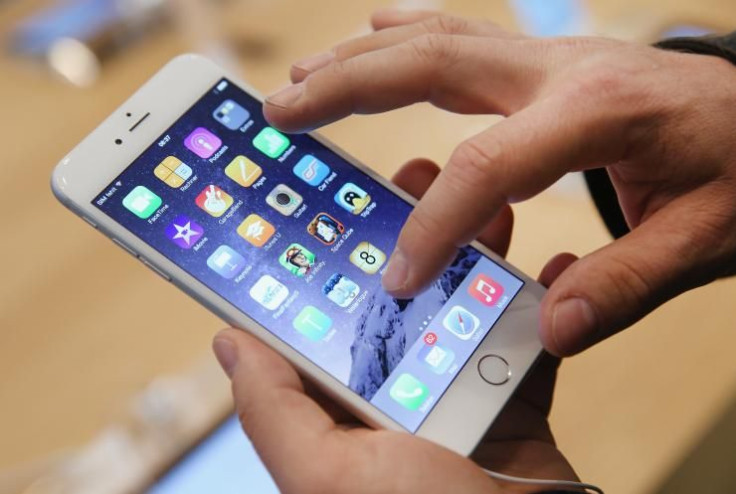Why Apple And Tim Cook Are Leading The Fight Against CISA And Government Surveillance

LONDON -- As the U.S. Senate prepares to vote on a controversial cybersecurity bill, known as CISA, Apple is newly flexing its political muscle. The company is leading the fight against government surveillance and positioning itself as a champion of its users' privacy.
There is a reason why Apple's digital assistant Siri is not as good as Google Now or Microsoft's Cortana. It is not because Apple's technology is inferior, but because Apple says it values the privacy and security of its customers over the ability to give them a more rounded service. Unlike Microsoft and Google, Apple does not send data from customers' iPhones or iPads to the cloud for processing, and as a result, Siri is a more limited service.
This decision is just one of the ways Apple and CEO Tim Cook, in particular, are standing up for the rights of its customers in the face of increased pressure from governments and law enforcement agencies. On Wednesday, the Cybersecurity Information Sharing Act (CISA) bill will come before the Senate, with a vote expected next Tuesday. Those backing the bill, which has bipartisan support, say it will simply allow companies to share with the government information on “cyberthreats,” not personal data.
Vocal Opposition
Apple disagrees. Wading into the debate Tuesday, Apple said in a statement: "We don't support the current CISA proposal. The trust of our customers means everything to us, and we don't believe security should come at the expense of their privacy."
Apple is far from the only tech company voicing its concern, with Dropbox, Yahoo, Reddit and Yelp all doing the same last week, while companies like Google, Microsoft Yahoo and Facebook have made their concerns known through the Computer and Communications Industry Association, a trade group that represents them in Washington.
The fact Apple chose of its own accord to speak out on the eve of the bill coming before the Senate highlights the company's ongoing and vocal pushback against attempts by the government and law enforcement agencies to access citizens' private data.

On the same day it spoke out against CISA, Apple was also in court in New York City, urging a judge to refuse a request by the U.S. Department of Justice to force it to access information stored on an iPhone seized during an investigation. Apple told the court that improvements in the encryption technology used in the latest versions of its iPhone and iPad software make it virtually impossible to comply with government requests to access a user's information.
A federal magistrate judge in Brooklyn, New York, had sought Apple's opinion as he weighed the request to force Apple to give the official access to information held on the phone. Apple said that for iPhones or iPads running iOS 8 or iOS 9, the two latest versions of the company's mobile operating system, gaining access to a password-protected device and extract unencrypted data "would be impossible to perform" as Apple introduced a feature in its software last year to prevent just this scenario from happening -- including stopping Apple itself from accessing the data.
Threaten The Trust
Apple said 90 percent of its devices were using these versions of iOS, but that it could access the 10 percent of the devices running older versions of the software, which includes the iPhone in question in the Brooklyn case. Apple, however, urged the judge not to force it to comply with the request.
"Forcing Apple to extract data in this case, absent clear legal authority to do so, could threaten the trust between Apple and its customers and substantially tarnish the Apple brand," the company's lawyers said. The American Civil Liberties Union supported Apple's questioning of the DOJ request, arguing that what the government has asked for is unlawful: "As individuals and technology companies increasingly use encryption to safeguard communications and private records, this issue will increasingly affect everyone’s right to protect the privacy and security of their personal data."
U.S. Magistrate Judge James Orenstein has now asked Apple to address the broader legal issue in the case in more detail after the iPhone maker labeled it "important" in the hearing Tuesday, with another hearing scheduled for Thursday.
Thinly Veiled Criticism
Following the leaks of top-secret documents by National Security Agency whistleblower Edward Snowden in 2013, technology companies like Apple, Google and Facebook have been under the spotlight when it comes to how they use and share their customers' data. This week saw the Irish data protection commissioner agree to investigate how Facebook shares European customers' data with the U.S. government as consumers become increasingly concerned about protecting their private information.
While Google and Facebook have both publicly asserted they do not have backdoors in their systems to allow unfettered access by the likes of the NSA, Apple has been the company most vociferously defending its position -- and leading that defense has been CEO Tim Cook.
Last month, Cook published an update to Apple's privacy policy, in which he issued thinly veiled criticism of companies like Google and Facebook that use customer data for their own benefit. "When an online service is free, you’re not the customer," Cook said. "You’re the product. But at Apple, we believe a great customer experience shouldn’t come at the expense of your privacy.”
This week, at a Wall Street Journal conference in California, Cook spoke out again about privacy. On Monday, when asked about the need for some trade-off between privacy and national security, Cook rejected the notion, calling it a "cop-out," according to Fast Company. "No one should have to decide [between] privacy or security. We should be smart enough to do both," Cook added. "What we've said is that one of the key tenets that we feel very strongly about is that you can't have a backdoor in the software. Because you can't have a backdoor that's only for the good guys. Any backdoor is something the bad guys can exploit."
CISA supporters believe they have the support of 70 senators, which is enough to pass the White House-backed bill. But with Apple putting its considerable heft behind those opposing the proposal -- including a long list ot tech companies and groups like the Electronic Frontier Foundation and Fight for the Future -- it will be hoping its strong position on user privacy and encryption will convince enough people to change their minds.
© Copyright IBTimes 2024. All rights reserved.












